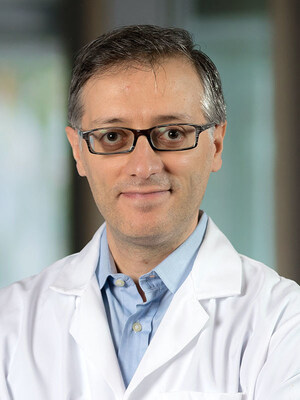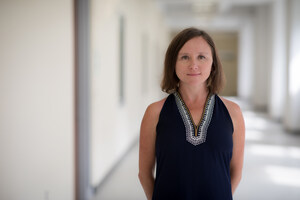High Blood Sugar Levels in Older Women Linked to Colorectal Cancer
BRONX, N.Y., Nov. 29, 2011 /PRNewswire-USNewswire/ -- Elevated blood sugar levels are associated with an increased risk of colorectal cancer, according to a study led by researchers at Albert Einstein College of Medicine of Yeshiva University. The findings, observed in nearly 5,000 postmenopausal women, appear in the November 29 online edition of the British Journal of Cancer.
According to the American Cancer Society, colorectal cancer is the third most commonly diagnosed cancer and the third leading cause of cancer death in both men and women in the U.S.
Statistics compiled by the U.S. Centers for Disease Control and Prevention for 2007 (the most recent year for which figures are available) show that 142,672 Americans were diagnosed with colorectal cancer, including 69,917 women; the 53,219 deaths from colorectal cancer that year were divided almost equally between men and women.
The Einstein study involved women who were enrolled in the National Institutes of Health's landmark Women's Health Initiative study. For these women, fasting blood sugar and insulin levels had been measured at baseline (i.e., the start of the study) and then several more times over the next 12 years.
By the end of the 12-year period, 81 of the women had developed colorectal cancer. The researchers found that elevated baseline glucose levels were associated with increased colorectal cancer risk—and that women in the highest third of baseline glucose levels were nearly twice as likely to have developed colorectal cancer as women in the lowest third of blood glucose levels. Results were similar when the scientists looked at repeated glucose measurements over time. No association was found between insulin levels and risk for colorectal cancer.
Obesity—usually accompanied by elevated blood levels of insulin and glucose—is a known risk factor for colorectal cancer. Researchers have long suspected that obesity's influence on colorectal cancer risk stems from the elevated insulin levels it causes. But the Einstein study suggests that obesity's impact on this cancer may be due to elevated glucose levels, or to some factor associated with elevated glucose levels.
"The next challenge is to find the mechanism by which chronically elevated blood glucose levels may lead to colorectal cancer," said Geoffrey Kabat, Ph.D., a senior epidemiologist at Einstein and lead author of the paper. "It's possible that elevated glucose levels are linked to increased blood levels of growth factors and inflammatory factors that spur the growth of intestinal polyps, some of which later develop into cancer."
The paper is titled "A Longitudinal Study of Serum Insulin and Glucose Levels in Relation to Colorectal Cancer Risk among Postmenopausal Women." Other Einstein authors are Mimi Kim, Sc.D., and Howard Strickler M.D., both professors in the department of epidemiology and population health, and senior author Thomas E. Rohan, M.D., Ph.D., professor and chair of epidemiology and population health.
About Albert Einstein College of Medicine of Yeshiva University
Albert Einstein College of Medicine of Yeshiva University is one of the nation's premier centers for research, medical education and clinical investigation. During the 2011-2012 academic year, Einstein is home to 724 M.D. students, 248 Ph.D. students, 117 students in the combined M.D./Ph.D. program, and 368 postdoctoral research fellows. The College of Medicine has 2,522 full time faculty members located on the main campus and at its clinical affiliates. In 2011, Einstein received nearly $170 million in awards from the NIH. This includes the funding of major research centers at Einstein in diabetes, cancer, liver disease, and AIDS. Other areas where the College of Medicine is concentrating its efforts include developmental brain research, neuroscience, cardiac disease, and initiatives to reduce and eliminate ethnic and racial health disparities. Its partnership with Montefiore Medical Center, the University Hospital and academic medical center for Einstein, advances clinical and translational research to accelerate the pace at which new discoveries become the treatments and therapies that benefit patients. Through its extensive affiliation network involving Montefiore and four other hospital systems in the Bronx, Manhattan and Long Island, Einstein runs one of the largest post-graduate medical training programs in the United States, offering 155 residency programs to 2,244 physicians in training. For more information, please visit www.einstein.yu.edu and follow us on Twitter @EinsteinMed.
SOURCE Albert Einstein College of Medicine
WANT YOUR COMPANY'S NEWS FEATURED ON PRNEWSWIRE.COM?
Newsrooms &
Influencers
Digital Media
Outlets
Journalists
Opted In






Share this article